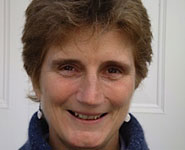She joined the Department of Social Medicine in 1994 as a Research Associate, before being awarded an MRC Training Fellowship in Health Services Research to evaluate the benefits of cataract surgery. The study was published in The Lancet and influenced policy through demonstrating that patients with cataracts should be offered surgery in both eyes. Through these experiences she discovered her gift for organisation and management, and so in 1998 she took on the role of Centre Administrator of the MRC Health Services Research Collaboration at the University, setting up a superbly efficient organisation.
In 2006 Cherida developed breast cancer. She was signed off work for 6 months, but in her typically determined fashion she continued to do as much as she could while she underwent treatment. Her cancer went into remission and she returned to work full-time in March 2007 to manage the formal closure of the MRC HSRC and transfer of research staff and programmes to the University. She then spent time travelling and with her family, and in 2009 decided to return to work as Trial Manager for a large, MRC-funded trial of PhysioDirect services to improve access to physiotherapy in primary health care.
She was attracted to this job, she said, because she thought the topic was important and also because it was well within her capabilities and would allow her time for her other interests. The project involved setting up new physiotherapy services in four areas of England, co-ordinating the work of physiotherapists and academic staff across several NHS sites and universities, and recruiting and following up over 3,000 patients. The fact that Cherida viewed this as contained enough to allow her plenty of spare time demonstrates the organisational abilities for which Cherida was renowned.
During the PhysioDirect trial, Cherida discovered that her cancer had recurred and had spread. She dealt with this news in a remarkable and positive way. She was extremely open about the development of her illness, telling any friends and colleagues who wished to know about her progress. She researched all the latest evidence about the best treatments and took a series of chemotherapy agents in succession, while being determined to live life to the full. She continued to work throughout this period, only having any significant time off work when she broke her arm playing hockey. When she lost her hair, she shaved her head and carried on. She was given a wig but only wore it on three occasions – and one of those was as fancy dress!
Cherida’s ability to use her time effectively was legendary. As well as maintaining a highly responsible job at the University, she helped her husband Ian with the management of his veterinary practice, was captain, chair and then president of Winscombe Ladies Hockey Club, and was churchwarden (amongst many other roles from youth leader to coffee maker) for St Andrews, Congresbury. In 2010 she was elected to the General Synod of the Church of England, feeling strongly that the C of E needed to resolve its internal struggles in order to focus on serving the community.
But for those of us who knew Cherida well, it was her ‘being’ as well as her ‘doing’ that made her so special. Her maturity and integrity, her calm acceptance, and her positivity were inspiring. Her whole life reflected her quiet but confident Christian faith. Her openness about her illness enabled her to relate to and support other people going through crises in their own lives. Cherida’s funeral was a celebration of her life and the church was full beyond capacity, with little space to stand, as so many people wanted to say goodbye.
Cherida leaves her husband, Ian, and many friends.
